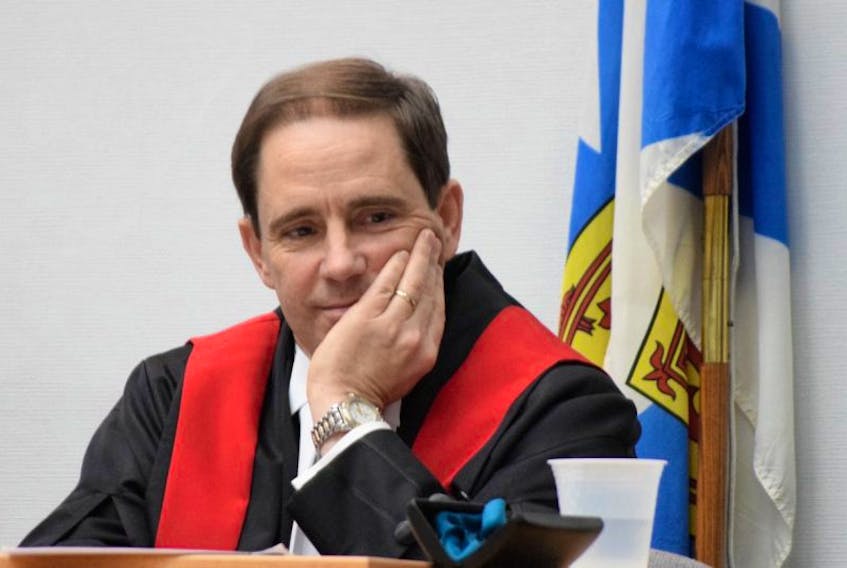TRURO, N.S. – A provincial court judge in Truro has ruled against an application to recuse himself from the preliminary inquiry in a first-degree murder case.
Judge Al Bégin also ruled against “a blanket publication ban” on all matters relating to the recusal application in the case against Ernie (Junior) Duggan.
Duggan, 49, of Bayhead, is accused of killing his neighbour, 58-year-old Susan Butlin, last Sept. 17.
During the application process, Bégin questioned defence and Crown counsel as to whether a partial ban would suffice “so that the general public would not be totally excluded from understanding what is occurring in our Courts while still maintaining the integrity of any potential jury pool, and protecting the rights of the Accused,” Bégin wrote in his decision, which he delivered orally in court on Tuesday.
A redacted version of his decision was provided to the media.
“The accused is of the view that a total ban is necessary and that if I was to order a partial ban that I would be ‘splitting hairs,’ he said. “The Crown is of the view that a partial ban would be permissible.
A Saltwire Network reporter also argued during a previous hearing against a blanket ban.
“I disagree with counsel for the Accused that a complete publication ban is required to protect the potential jury pool,” the judge read from his written copy. “I firmly believe that a partial publication ban could protect the jury pool, and the Accused’s rights, while keeping members of the general public informed as to what is being decided by the Courts. The openness of our Courts is very important in a free and democratic society. This openness can be achieved while still protecting the rights of an Accused.”
Bégin ordered that a publication ban be placed on all documents filed with the court in relation to the recusal application as well as on all written submissions of the accused and the Crown.
He also ordered that all media reporting on what has been applied for by the accused be limited to the redacted version of his decision and that the ban remain in effect until an eventual jury has been sequestered during Duggan’s trial.
The recusal application to bar Bégin from hearing Duggan’s preliminary inquiry came in response to the fact that the judge had participated in a peace bond application hearing prior to Butlin’s death.
The peace bond application alleged that Duggan had forced unwanted sexual activity on her and that she had implied he had also damaged her swimming pool.
During the peace bond hearing on Aug. 30, 2017, while both Duggan and Butlin were in attendance, Bégin advised the court that after reading the application it appeared “on the face of it” to be a criminal offence (sexual assault) and that he had requested through the Crown attorney’s office that it be further investigated by the RCMP.
Slightly more than two weeks later, Butlin was killed in her home and a few hours later, Duggan was allegedly involved in a shootout with police at a cemetery in Tatamagouche.
In his decision not to grant the recusal application, Bégin cited numerous arguments against doing so.
In his concluding remarks, the judge said the “accused is not suggesting any general bias on my part, nor any personal interest in the outcome of the Preliminary Inquiry which would amount to a disqualifying conflict. Certainly none has been presented in any submissions. The Accused’s recusal application is based on the possibility of conscious or unconscious bias.”
Bégin noted he had very limited involvement in Butlin’s peace bond application and that no adverse findings had been made against Duggan.
“The test in this matter is whether a reasonable person would perceive or believe that I would not fairly and impartially, without bias, decide the matter of the Accused’s committal to stand trial at the Preliminary Inquiry stage based on my very limited dealings with the Accused at the two brief appearances before me.”
He argued instead that “reasonably and properly informed person” would “realistically and practically conclude that I would not be biased, and that I would uphold and respect my judicial oath and decide the legal question of committal fairly and impartially.”
Duggan’s preliminary inquiry has tentatively been scheduled for the weeks of Sept. 10 and 17.









